Devon Trevarrow Flaherty's Blog, page 61
July 23, 2015
Book Review: The Life of Charlotte Bronte
 The Life of Charlotte Bronte, by Elizabeth Gaskell. First published in 1857 in two volumes. The version I read, bought gently used, is the 2005 Barnes & Noble Classics edition.
The Life of Charlotte Bronte, by Elizabeth Gaskell. First published in 1857 in two volumes. The version I read, bought gently used, is the 2005 Barnes & Noble Classics edition.
I read this book for two reasons: one, I am in the middle of a Bronte project for Owl and Zebra Press, and two, it is on the Best Books list, both in general and in biography. It is considered either the best or one of the best biographies ever written.
So let’s start there. Why is this one of the best biographies ever written? There are several reasons that present themselves. Gaskell started with an interesting life, a life that is still interesting 120 years later. It’s the reason I couldn’t wait to read the book: a small, pastor’s family of mostly girls, in the middle of nowhere but with very high levels of genius, dying off one by one until only the father had made it to age 40. Meanwhile, the three girls who made it to adulthood whipped off novels before their untimely deaths–novels that would be acknowledged as some of the best ever written. Intriguing. Also, it never hurt Gaskell that not only Bronte was famous at the time of her death, but that Gaskell was also famous. (At time time, Gaskell was even more famous.) Now, however, critics like to point more to the sensitivity of Gaskell’s biography, which I think refers to its humanity. Gaskell handles Bronte’s life with kid gloves, yet–for the time, at least–does not shy away from all the facts. (We’ll talk more about this later.) Also, it would take a great writer to write such a great biography, right? I would argue that much of the charm of the book comes from Bronte herself.  Gaskell composed most of the book by lifting Bronte’s own letters, letting Bronte speak for herself and effectively shrouding the whole book in Bronte’s literary charms and talents. I would say that the style comes off as more Bronte’s than Gaskell’s. In fact, when we are pulled for long from the Bronte letters, we are lifted from the flow and a little disappointed at the disintegration of the literary spell.
Gaskell composed most of the book by lifting Bronte’s own letters, letting Bronte speak for herself and effectively shrouding the whole book in Bronte’s literary charms and talents. I would say that the style comes off as more Bronte’s than Gaskell’s. In fact, when we are pulled for long from the Bronte letters, we are lifted from the flow and a little disappointed at the disintegration of the literary spell.
It probably didn’t hurt, either, that Gaskell was threatened with a high profile libel suit as soon as the book hit the shelves. In the book, Gaskell obliquely (read: Victorian style) accuses a Lady of England of an affair (of unknown nature) with the Bronte son. And, ultimately, unwitting murder. The Lady had a fit and managed to have all copies pulled from sale and the book re-issued with omissions. Thankfully, our current copies are the original.
As for the rest of the history, it is this: Charlotte Bronte was born the third-eldest daughter in a family of six. Her father was a pastor and moved his young family to the far-North moors of England, to a small, isolated village, where her mother quickly died. Her aunt came to raise the children (but would die before they became writers), and Mr. Bronte realized his children’s genius–especially his son’s–and sought an education for them. Through a series of boarding schools and then stints as governesses and teachers,  two sisters perished and three emerged into adulthood intensely shy and religious and weak in body. As a way to escape governessing, Bronte published a book of the three sisters’ poetry and they took on male nom de plumes and wrote their first novels. In a relatively short span of time, the sister’s became famous, the Bronte son drank himself to death (after a public exposure of his affair/obsession with his employer’s wife), and the two remaining sisters died. After Charlotte’s brief marriage and untimely death, the novelist Elizabeth Gaskell–a newer friend of Bronte’s–rushed to gather letters and interview, writing The Life of Charlotte Bronte rather quickly. These are the bones of the story, the story that would lead to Jane Eyre and Wuthering Heights, and five other novels. As for anything more, you can read the book and see.
two sisters perished and three emerged into adulthood intensely shy and religious and weak in body. As a way to escape governessing, Bronte published a book of the three sisters’ poetry and they took on male nom de plumes and wrote their first novels. In a relatively short span of time, the sister’s became famous, the Bronte son drank himself to death (after a public exposure of his affair/obsession with his employer’s wife), and the two remaining sisters died. After Charlotte’s brief marriage and untimely death, the novelist Elizabeth Gaskell–a newer friend of Bronte’s–rushed to gather letters and interview, writing The Life of Charlotte Bronte rather quickly. These are the bones of the story, the story that would lead to Jane Eyre and Wuthering Heights, and five other novels. As for anything more, you can read the book and see.
 As for the book as a piece of literature, it is okay. In fact, it’s so okay that you rarely remember that you are reading; you’re just flawlessly lifted from you life and the language is smooth and unobtrusive. As I mentioned above, the bulk of the text comes from letters and most of those letters written by Charlotte Bronte, therefore the tone is largely Bronte’s conversational tone. It’s quite pleasant, and while Gaskell is sort of telling me one thing about Bronte, I am reading something else in the character of her letters. Nearing the end, the book drags on, and I lost interest when Gaskell included all those letters from Bronte discussing the literature and literary news of their times. It was a mistake to veer from Bronte’s more personal revelations, but I am guessing that Gaskell had scant else to go on during this period. It makes me wonder if the tale should have been told in a less chronological way, at least as far as the letters go.
As for the book as a piece of literature, it is okay. In fact, it’s so okay that you rarely remember that you are reading; you’re just flawlessly lifted from you life and the language is smooth and unobtrusive. As I mentioned above, the bulk of the text comes from letters and most of those letters written by Charlotte Bronte, therefore the tone is largely Bronte’s conversational tone. It’s quite pleasant, and while Gaskell is sort of telling me one thing about Bronte, I am reading something else in the character of her letters. Nearing the end, the book drags on, and I lost interest when Gaskell included all those letters from Bronte discussing the literature and literary news of their times. It was a mistake to veer from Bronte’s more personal revelations, but I am guessing that Gaskell had scant else to go on during this period. It makes me wonder if the tale should have been told in a less chronological way, at least as far as the letters go.
 Speaking of dragging on, I know that she claims having left out many letters, but it felt like Gaskell included too much. In other words, the book easily could have been streamlined and still said the same thing. Time after time, we see letters revealing to us the same things about Bronte, over and over. Gaskell herself is guilty of repeating things, driving home her points with the ring of a hammer on a stake.
Speaking of dragging on, I know that she claims having left out many letters, but it felt like Gaskell included too much. In other words, the book easily could have been streamlined and still said the same thing. Time after time, we see letters revealing to us the same things about Bronte, over and over. Gaskell herself is guilty of repeating things, driving home her points with the ring of a hammer on a stake.
On the other hand, she left important things out, thanks to her Victorian sensibilities. Those Victorians were strange people. What could and couldn’t be said created a web of deception and revelation that is difficult to comprehend at this distance. For example, Gaskell can not say, “Bronte was pregnant when she died.” She can also not mention what happened with the baby or how far along Bronte was. Actually, she probably didn’t know,  because Bronte herself never could have said. The history of the Brontes includes many incidences where we are required to read between the lines or, in the worst cases, wonder longingly at a pale space between facts.
because Bronte herself never could have said. The history of the Brontes includes many incidences where we are required to read between the lines or, in the worst cases, wonder longingly at a pale space between facts.
But beyond her very Victorian omissions, one can’t help feel that Gaskell had but one lens through which she saw Charlotte, and it is applied completely and thickly. I have no doubt that Bronte struggled with homesickness, sickliness, and possible depression, but Gaskell lays it on so thick that we don’t get the part of Bronte that shines through her letters: the wit, sarcasm, humor, and even happiness. Personally, it really seems that Bronte herself perpetuated the impression others would have of her physical weakness, her helplessness, her depression (through classic negativity)…  yet she was clearly also strong, capable, smart, and at times deeply satisfied. Just like all of us, Bronte and Gaskell saw herself/her one way, while the reality was much more complex and subtle. And, as is always the case, Bronte becomes to us a sort of collage of a dozen memorable and iconic moments: the Bronte children receiving their box of wooden soldiers; little Charlotte lost in absorption of the political news; Emily on the moors with her faithful dog; Anne toiling as a governess with her head bent is submission; the three girls walking the parlour in the dark of night, discussing their writing; the near-empty house in the middle of the graveyard.
yet she was clearly also strong, capable, smart, and at times deeply satisfied. Just like all of us, Bronte and Gaskell saw herself/her one way, while the reality was much more complex and subtle. And, as is always the case, Bronte becomes to us a sort of collage of a dozen memorable and iconic moments: the Bronte children receiving their box of wooden soldiers; little Charlotte lost in absorption of the political news; Emily on the moors with her faithful dog; Anne toiling as a governess with her head bent is submission; the three girls walking the parlour in the dark of night, discussing their writing; the near-empty house in the middle of the graveyard.
At any rate, I loved reading this biography for its revelation of the writing life. I would say “writing life in Victorian times,”  but I find that not much is different between Bronte’s being a writer and my being a writer. For more on reading The Life as a writer, see my blog HERE.
but I find that not much is different between Bronte’s being a writer and my being a writer. For more on reading The Life as a writer, see my blog HERE.
So, yeah, I recommend it, but it can get long and dry at times. And I strongly suggest that you take anything Gaskell says with a grain of salt: she was, after all, a famous woman rushing to write the definitive biography on another famous person, one whom she had known only for a limited time. I’m not saying Gaskell’s motives or knowledge were bad, just that they were–like all of ours–mixed and not crystal clear.
I’m sure there are more modern biographies that are more entertaining, but this one is surely worth reading, especially if you enjoy biographies, love the Brontes, or are writing biographies of your own.
_______________
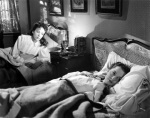 There must have been biographical snippets on TV here and there, about Charlotte Bronte, but I don’t know how to find them. The BBC announced their intention of making a drama about the lives of the Brontes, last May. They have not said much more than who will write, direct, and generally where the filming will take place. Also, casting was happening way back in May. Waiting for more information. There’s also a highly fictionalized film, Devotion, from 1946.
There must have been biographical snippets on TV here and there, about Charlotte Bronte, but I don’t know how to find them. The BBC announced their intention of making a drama about the lives of the Brontes, last May. They have not said much more than who will write, direct, and generally where the filming will take place. Also, casting was happening way back in May. Waiting for more information. There’s also a highly fictionalized film, Devotion, from 1946.
_______________
“My heart is a very hot-bed for sinful thoughts, and when I decide on an action I scarcely remember to look to my Redeemer for direction. I know not how to pray; I cannot bend my life to the grand end of doing good; I go on constantly seeking my own pleasure” (p127).
“I recollected the fable of the willow and the oak; I bent quietly, and now, I trust, the storm is blowing over me” (p138).
“I think, if you can respect a person before marriage, moderate love at least will come after; and as to intense passion, I am convinced that that is no desirable feeling” (p151).
“This made it possible for her to go through long and deep histories of feeling and imagination, for which others, odd as it sounds, have rarely time” (p157).
“I am a fool. Heaven knows I cannot help it!” (p159).
“…but, God knows, I have enough to do to keep a good heart in the matter” (p159).
“I find it is not in my nature to get along in this weary world without sympathy and attachment in some quarter; and seldom indeed do we find it” (p160).
“As to getting into debt, that is a thing we could none of us reconcile our minds to for a moment” (p162).
“…but when you have thrown the reins on the neck of your imagination, do not pull her up to reason” (p183).
“All this, looked upon as a well-invented fiction in Shirley, was written down by Charlotte with streaming eyes; it was the literal true account of what Emily had done” (p211).
“Do not condemn yourself to live only be halves” (p220).
“You thought I refused you coldly, did you? It was a queer sort of coldness, when I would have given my ears to say Yes, and I was obliged to say No” (221).
“I must remember perfection is not the lot of humanity; and as long as we can regard those we love, and to whom we are closely allied, with profound and never-shaken esteem, it is a small thing that they should vex us occasionally by what appear to us unreasonable and headstrong notions” (p231).
“[Poems by Currer, Ellis, and Acton Bell] stole into life; some weeks passed over, without the mighty murmuring public discovering that three more voices were uttering their speech” (p236).
“…nor will you be praised and admired for remaining at home to comfort your mother; yet, probably, your own conscience will approve, and if it does, stay with her” (p237).
“If you see any honey, gather it” (p250).
“…yet she must not shrink from the extra responsibility implied by the very fact of her possessing such talents” (p273).
“‘The pomp and circumstance of war’ have quite lost in my eyes their fictitious glitter” (p279).
“I have now outlived youth; and, though I dare not say that I have outlived all its illusions…” (p279).
“When people belong to a clique, they must, I suppose, in some measure, write, talk, think, and live for that clique; a harassing and narrowing necessity” (p278).
“Till the last hour comes, we never know how much we can forgive, pity, regret” (p290).
“Fortitude is good; but fortitude itself must be shaken under us to teach us how weak we are” (p301).
“…before ‘the desk was closed, and the pen laid aside forever'” (p304).
“But, Lord, whatever be my fate, / Oh let me serve Thee now!” (p305).
“I do not now how life will pass, but I certainly do feel confidence in Him who has upheld me hitherto” (p313).
“Solitude, Remembrance, and Longing are to be almost my sole companions all the day through–that at night I shall go to bed with them” (p313).
“But crushed I am not, yet; nor robbed of elasticity, nor of hope, nor quite of endeavor” (p313).
“The strength, if strength we have, is certainly never in our own selves; it is given us” (p319).
“The two human beings who understood me, and whom I understood, are gone” (p320).
“…it is for me a part of my religion to defend this gift, and to profit by its possessions” (p320).
“That matters little. My own conscience I satisfy first” (p326).
“…it is so bad for the mind to be quite alone, and to have none with whom to talk over little crosses and disappointments” (p336).
“Thackeray still proves himself greater when he is weary than other writers are when they are fresh” (p340).
“Happiness quite unshared can scarcely be called happiness; it has no taste” (p341).
“…if I knew all that was coming, it would be comparatively flat. I would much rather not know” (p341).
“…she only grieves that a mind of which this is the emanation, should be kept crushed by the leaded hand of poverty” (p342).
“Some people’s natures are veritable enigmas: I quite expected to have had one good scene at least with him; but as yet nothing of the sort has occurred” (p342).
“…but he who shuns suffering will never win victory” (p343).
“Youth has its romance, and maturity its wisdom, as morning and spring have their freshness, noon and summer their power, night and winter their repose. Each attribute is goof in its own season” (p346),
“…that is to say, the excuses were often worse than the crime itself” (p347).
“…but I think grief is a two-edged sword, it cuts both ways; the memory of one loss is the anticipation of another” (p352).
“…’enough,’ the proverb says, ‘is as good as a feast'” (p358).
“Sunday–yesterday–was a day to be marked with a white stone” (p381).
“Who has the words at the right moment?” (p382).
“…we must love our friends for their sakes rather than for our own” (p387).
“…it is better to be worn our with work in a thronged community, than to perish f inaction in a stagnant solitude” (p388).
“…it is good to be attracted outside of ourselves–to be forced to take a near view of the sufferings, the privations, the efforts, the difficulties of others” (p393).
“If, on the other hand, we be contending with the special grief,–the intimate trial,–the peculiar bitterness with which God has seen fit to mingle our own cup of existence,–it is very good to know that our overcast lot is not singular …. there are countless afflictions in the world, each perhaps rivaling–some surpassing–the private pain …. a thorn in the flesh for each; some burden, some conflict for all” (p393).
“‘…marriage might be defined as the state of two-fold selfishness'” (p407).
“Submission, courage, exertion, when practicable,–these seem to be the weapons with which we must fight life’s long battle” (p410).
“…my palette affords no brighter tints; were I to attempt to deepen the reds, or burnish the yellows, I should by botch” (p416).
“I might explain away a few other points, but it would be too much like drawing a picture and then writing underneath the name of the object intended to be represented” (p416).
“The longer I live, the more plainly I see that gentle must be the strain on fragile human nature; it will not bear much” (p424).


July 20, 2015
The Brave Old World of Self Publishing
I have a secret I would like to share with you. Turns out self publishing isn’t so new. In fact, it’s older than “traditional” publishing.
Say what?!
Maybe you’re not totally surprised. Personally, I had been coming to this conclusion slowly, over time. And in no way do I have great knowledge of the history of publishing. But I have been reading The Life of Charlotte Bronte by Elizabeth Gaskell (review forthcoming) and I have been amused and heartened by Bronte’s journey and struggles as a writer.
 Let’s start with this: Bronte’s struggles are way more similar to mine–as a modern indie publisher–than I had expected. We are not only similar in the moral, emotional, and even social struggles we face, but we also actually do many of the same things. To begin with, Bronte paid for her publication (which, thanks to POD, is actually less expensive now than it used to be), chose her paper, the size of her book, and dictated its appearance, edited and copy-edited her work, sent out review copies (at her own expense), managed advertising (and paid for that, too), closely monitored her reviews (which were only official, back in the day), etc. Hey, I do all these things!
Let’s start with this: Bronte’s struggles are way more similar to mine–as a modern indie publisher–than I had expected. We are not only similar in the moral, emotional, and even social struggles we face, but we also actually do many of the same things. To begin with, Bronte paid for her publication (which, thanks to POD, is actually less expensive now than it used to be), chose her paper, the size of her book, and dictated its appearance, edited and copy-edited her work, sent out review copies (at her own expense), managed advertising (and paid for that, too), closely monitored her reviews (which were only official, back in the day), etc. Hey, I do all these things!
When I was growing up an aspiring author, I was given the impression that all writers did was write. Then they made a killer cover letter and sent it out to up to hundreds of agents or editors. Then they cashed a royalty check and, while approving edits, wrote again in between making authorly appearances. Of course, this idea was outdated already by the time I had become a working adult, but before POD and e-books it was mostly in that authors were also doing their own marketing on their own dime (including book tours and launches). But while most aspiring authors still remained oblivious to this truth, PODs and e-books did happen and, and whole new world of self-publishing erupted.
Except, maybe it wasn’t new. Maybe it was old as the hills, just with some new features (like with those wonderful PODs I keep mentioning).
 I have occasionally heard some self-pubber get all excited about a fact like, “Walt Whitman/Jane Austen/Charles Dickens self published!” I’m beginning to think–even while I am more than happy to be in such great company–that these little facts are not very novel. In fact, it would be surprising if any early authors were NOT self-published. Being paid for a book–especially a first book–before sales, was way less common in a not-so-distant past. Actually, I’m not sure it ever happened for a long, long time after the invention of the printing press. Even authors writing periodicals or printing in periodicals often (or always?) did it on their own initiative and with their own centimes. Publishers, at one time, seemed to be more of a place to print and distribute, as opposed to cull the country for the best writing and take the financial burden and publicity on, themselves. Sound familiar? Self-printing is what self-pubbing guru Catherine Ryan Howard calls modern self publishing, because the modern self publisher (or indie publisher) basically does all the work themselves (or contract it out), takes on all the fiscal responsibility, and uses publishing houses like CreateSpace and Lulu as printers. While royalties are a favorite subject online, I could not find a date for the first paid royalties for publishing. I would guess that authorship as I was told it growing up came about no earlier than the twentieth century. Certainly, marketing was at best a mix between author and publisher in the nineteenth century. Perhaps distribution was aided about that time.
I have occasionally heard some self-pubber get all excited about a fact like, “Walt Whitman/Jane Austen/Charles Dickens self published!” I’m beginning to think–even while I am more than happy to be in such great company–that these little facts are not very novel. In fact, it would be surprising if any early authors were NOT self-published. Being paid for a book–especially a first book–before sales, was way less common in a not-so-distant past. Actually, I’m not sure it ever happened for a long, long time after the invention of the printing press. Even authors writing periodicals or printing in periodicals often (or always?) did it on their own initiative and with their own centimes. Publishers, at one time, seemed to be more of a place to print and distribute, as opposed to cull the country for the best writing and take the financial burden and publicity on, themselves. Sound familiar? Self-printing is what self-pubbing guru Catherine Ryan Howard calls modern self publishing, because the modern self publisher (or indie publisher) basically does all the work themselves (or contract it out), takes on all the fiscal responsibility, and uses publishing houses like CreateSpace and Lulu as printers. While royalties are a favorite subject online, I could not find a date for the first paid royalties for publishing. I would guess that authorship as I was told it growing up came about no earlier than the twentieth century. Certainly, marketing was at best a mix between author and publisher in the nineteenth century. Perhaps distribution was aided about that time.
But beyond the nitty-gritty of indie publishers’ lives everywhere, I was comforted reading about Bronte’s struggles as a fellow writer/author. It is true, we are in new times. Daily life is transforming fast. It is a crazy era to be alive. But, there is also nothing new under the sun, and Bronte (and other authors) had the same thoughts, feelings, and even routines that I have right here in the middle of the crazy times. Bronte struggled with:
the credit question. Did she want fame or celebrity? Did she want others to know what she had written? And once she was accomplished, how could she write to that credit? Could she become obscure again?
gender issues. Bronte and her sisters infamously hid their gender behind pseudonyms because they feared not being taken seriously. They also wrote many things that were condemned largely because they were women, and were accused of crudeness.
culture issues. The sisters Bronte felt obliged to write about the current issues. Anne especially considered it her duty to expose with her writing.
motivational questions. Do you write from the heart or write for money? As all authors do, Bronte changed her stance on this from time to time, and was never purely on one side or the other. It is, after all, a career, and Bronte began writing novels as a means to make money, but do it in an avenue where she suspected talent and where she could retain the most freedom to live as she wanted to.
rejection. I would not recommend this, actually, but Bronte minutely followed her reviews and reviewers. She considered their opinions to be like further editing, and she wrote her next novel with all of them in mind. Conversely, she had many areas in which she was loathe to change. See below. Rejection stung her, just like us.
bad publishers and good ones. Bronte had a very admirable relationship with her publishers until a relationship issue later in her short life, but her sisters’ publishers gave them, and even her, no end of grief. Delayed publishing dates were just the beginning.
perfection in writing. When is a novel done? Gaskell says that Bronte struggled one sentence at a time. She would play with each word in her mind until she had it just as she wanted, then would set the sentence down exactly as intended.
taking advice versus following her instinct. She wanted to hear the advice, but it sometimes pitted others against her writerly instinct.
writing from what she knew. These days, it would be unthinkable to pull events and characters from life to the extent that Bronte did. It has been said that some of her most “imaginative” characters and scenes were simply pulled from who she knew and what she saw. She openly admitted to this.
having limited experiences. Yes, there is always fantasy writing, but Bronte was no fantasy writer. She considered that stories had to reproduce reality on some level, and she would never dare write about a place she had not been. Unfortunately (or fortunately), her scope of experience was quite limited.
daily duties versus working as a writer. This is one of my own greatest struggles as a writer, so I was glad to see I was not alone. Bronte was known for never letting her daily duties falter. She would clean the house, make the meal, take care of her dad, visit the parsonage, and then settle down to write that next chapter which had been wheedling at her all day. She had a very intense sense of duty, and–had she lived much longer–she might have subverted her next novel to her (new) wifely and motherly duties. In fact, I strongly suspect we never would have seen another book, had she lived.
being a woman writer. I have blogged about this before, but being a woman writer is a different thing from being a man writer. Bronte struggled with all the same facets of a woman writing that I still do.
the calling and responsibility of talent.
inspiration. Bronte and I part opinions, here, but she only wrote when she was physically able (she was very sickly) and also inspired. She would go months without writing if she did not feel it. She would also write furiously, rarely sleeping, when she did.
knowing thyself. She was convinced Shirley was better than Jane Eyre, and was somewhat baffled by the public consensus.
And more…
Here are some writing life quotes from The Life of Charlotte Bronte:
“Surely, in this day when there is not a writing poet worth a sixpence, the field must be open, if a better man can step forward” (p118).
“Many volumes of poems are now published every year without attracting public attention, any one of which, if it had appeared a half a century ago, would have attained a high reputation for its author. Whoever, therefore, is ambitious of distinction in this way out to be prepared for disappointment” -Robert Southey (p122).
“Write poetry for its own sake; not in a spirit of emulation, and not with a view to celebrity” -Robert Southey (p123).
“You kindly allow me to write poetry for its own sake, provided I leave undone nothing which I ought to do, in order to pursue that single, absorbing, exquisite gratification” (p124).
“…for sometimes when I’m teaching or sewing I would rather be reading or writing” (p125).
“…such a strong wish for wings–wings such as wealth can furnish; such an urgent thirst to see, to know, to learn; something internal seemed to expand bodily for a minute” (p163).
“If I could, I would always work in silence and obscurity, and let my efforts be known by their results” (p167).
“The great puzzle lay in the difficulty of getting answers of any kind from the publishers to whom we applied” (p228).
“It is evident that unknown authors have great difficulties to contend with, before they can succeed in bringing their works before the public” (p234).
“Currer Bell’s book found acceptance nowhere, nor any acknowledgement of merit, so that something like the chill of despair began to invade his heart” (p245).
“One set of words was the truthful mirror of her thoughts; no others,however apparently identical in meaning, would do” (p246).
“Charlotte told me, that the remarks made had seldom any effect in inducing her to alter her work, so possessed was she with the feeling that she had described reality” (p247).
“These ideas sting me keenly sometimes; but, whenever I consult my conscience, it affirms that I am doing right in staying at home [and writing], and bitter are its upbraidings when I yield to an eager desire for release” (p248).
“People often think they can do great things in that way till they have tried” (p248).
“When a man becomes an author, it is probably merely a change of employment to him. He takes a portion of that time which has hitherto been devoted to some other study or pursuit …. and another merchant, or lawyer, or doctor, steps into his vacant place, and probably does well as he. But no other can take up the quiet, regular duties of the daughter, the wife, or the mother, as well as she whom God has appointed to fill that particular place: a woman’s principal work in life is hardly left to her own choice; nor can she drop the domestic charges devolving on her as an individual, for the exercise of the most splendid talents that were ever bestowed” (p273).
“And yet she must not shrink from the extra responsibility implied by the very fact of her possessing such talents. She must not hide her gift in a napkin…” (p273).
“When authors write best, or, at least, when they write most fluently, an influence seems to waken in them, which becomes their master–which will have its way…” (p274).
“No doubt, however, you are, as I am, prepared for critical severity; but I have good hopes that the vessel is sifficiently sound of construction to weather a gale or two, and to make a prosperous voyage for you in the end” (p322).
“Out of obscurity I came, to obscurity I can easily return” (p323).
“That matters little. My own conscience I satisfy first” (p326).
“My present endeavors are directed towards recalling my thoughts, cropping their wings, drilling them into correct discipline, and forcing them to settle to some useful work: they are idle and keep taking the train down to London…” (p348).
“…it seems to me that bitter sorrow, while recent, does not flow out in verse” (p357).
“Besides, I don’t deserve to go to London; nobody merits a change or a treat less. I secretly think, on the contrary, I ought to be put in prison, and kept on bread and water in solitary confinement–without even a litter from Cornhill–till I had written a book” (p374).
“Originality is the pearl of great price in literature–the rarest, the most precious claim by which an author can be recommended” (p393).
“When the mood leaves me …. I put by the MS and wait till it comes back again” (p396).
“People are apt to conceive, or at least to profess, exaggerated expectation, such as not performance can realise: then ensue disappointment and the due revenge, detraction, and failure. If when I write, I were to think og the critics who, I know, are waiting for Currer Bell, ready ‘to break all his bones or ever he comes to the botton of the den,’ my hand would fall paralysed on my desk. However, I can but do my best, and then muffle my head in the mantle of Patience…” (p397).
“And yet you must follow the impulse of your own inspiration. If that commands the slaying of the victim, no bystander has a right to put out his hand to stay the sacrificial knife” (p407).
“Work first, then pleasure” (p412).
“I should be most thankful for the sheltering shadow of an incognito. I seem to dread the advertisements–the large-lettered ‘Currer Bell’s New Novel,’ or ‘New Work, by the Author of Jane Eyre'” (p413).
“I cannot write books handling the topics of the day… Nor can I write a book for its moral …. To manage these great matters rightly, they must be long and practically studied–their bearings know intimately, and their evils felt genuinely; they must not be taken up as a business matter, and a trading speculation” (p414).
“I said my prayers when I had [finished Villette]. Whether it is well or ill done, I don’t know” (p418).
“…she had never, to her knowledge, taken a grain of [opium] in any shape, but that she had followed the process she always adopted when she had to describe anything which had not fallen within her own experience; she had thought intently on it for many and many a night before falling to sleep,–wondering what it was like or how it would be,–till at length, sometimes after the progress of her story had been arrested at this one point for weeks, she wakened up in the morning with all clear before her, as if she had in reality gone through the experience, and then could describe it, word for word, as it had happened. I cannot account for this psychologically; I only am sure that it was so, because she said it” (p437).
“I recollect, too, her saying how acutely she dreaded a charge of plagiarism, when, after she had written ‘Jane Eyre,’ she read the thrilling effect of the mysterious scream at midnight in Mrs. Marsh’s story of the ‘Deformed.’ She also said that, when she read the ‘Neighbours,’ she thought every one would fancy that she must have taken her conception of Jane Eyre’s character from that of Francesca, that narrator of Miss Bremmer’s story” (p438).


July 15, 2015
The First Line Is Wonderful
Literature news!: Literature is news!
 (Did that make sense? What I’m saying is that it’s news that literature is news. Everywhere I go, I keep hearing about Harper Lee and To Kill a Mockingbird and Go Set a Watchman. It’s like the literature world has busted right open and for a brief amount of time some of us will get to be rock stars. Okay, one of us. Maybe J.D. Sallinger too if the rumors are true.)
(Did that make sense? What I’m saying is that it’s news that literature is news. Everywhere I go, I keep hearing about Harper Lee and To Kill a Mockingbird and Go Set a Watchman. It’s like the literature world has busted right open and for a brief amount of time some of us will get to be rock stars. Okay, one of us. Maybe J.D. Sallinger too if the rumors are true.)
If you have been living under a rock, let me point you to a blog entry that I wrote earlier this year, when it was announced that Harper Lee was going to publish a second book, a sort of earlier-written sequel to To Kill a Mockingbird. Under rock: read HERE.
And as of yesterday, the publication date has come (and gone). And it is a madhouse. (Exaggeration only if you have not been trying to get your hands on a copy of anything Harper Lee.) To be honest, I was going to let the monumental day pass, remaining oblivious because 1) hard covers cost more, 2) I knew my voice would be drowned in the virtual cacophony of opinions, reviews, blogs, articles, and speculation, and 3) I am in the middle of an important project. But I always intended to get around to reading the new Go Set a Watchman and also the old To Kill a Mockingbird (which have awkwardly similar titles, by the way) since I hadn’t read the latter since high school. Like later this year, maybe? And then review them and make my own speculations about Harper Lee. However, a kind person graciously gifted me with a Kindle copy of Go Set a Watchman on it’s release date and–quickly nearing the end of one Bronte biography and, let’s face it, desperately needing a break before the next one–I decided Why not join in the frenzy?
 As of last night, every copy I could find online of To Kill a Mockingbird was either overpriced or out of stock, including the library having every single copy on hold up to like thirty people. Today, I was told by used bookstores, “No, I don’t have any copies left and can you believe all this?” before my local bookstore offered me one of the two that they had left on the shelves. I am going to guess that I will have finished the biography I am reading and sailed through both of Harper Lee’s books in a week. Then I will have my quiet say.
As of last night, every copy I could find online of To Kill a Mockingbird was either overpriced or out of stock, including the library having every single copy on hold up to like thirty people. Today, I was told by used bookstores, “No, I don’t have any copies left and can you believe all this?” before my local bookstore offered me one of the two that they had left on the shelves. I am going to guess that I will have finished the biography I am reading and sailed through both of Harper Lee’s books in a week. Then I will have my quiet say.
Until then, I have two things to add to the racket.
One, it is some strange juju that rockets one particular book and one particular lady to such heights of popularity and fortune. It is amazing to me that people are so in love with the cool math that is science, when in our daily lives one plus one rarely equals two. Think about it.
Two, the first line is a real winner. If it is any indication of the quality of the book, I am excited. Open up Go Set a Watchman, and you will read,
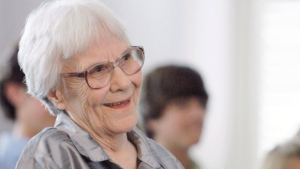 “Since Atlanta, she had looked out the dining-car window with a delight almost physical.”
“Since Atlanta, she had looked out the dining-car window with a delight almost physical.”
I have a love affair with first sentences. (For my blog on that, see HERE.) This is almost the perfect first line. It is melodic and dramatic. It is mildly suspenseful. (Perhaps more suspense would be better.) It tells you about where and when you are, and also about the main character. It even has an element of surprise in its last word.
So that’s what I have for you. A balk at the wheels of fortune, a first line, and a promise of a review. Enjoy the spotlight, people, while it lasts.


July 13, 2015
Best Books Reflection So Far
 It’s been two and a half years since I posted “Sound Advice,” an entry on The Starving Artist about reading. At the time, I was wanting to read more and also seeing it as part of my job as a writer, but I was struggling with a long string of books which were sub-par. I felt as if I had been chasing books based on whims, bookstores, and recommendations, and almost all of the them had been falling short of my expectations and leaving me apathetic about picking up the next book. At the same time, I had one of those reading bucket lists growing somewhere in the back of my subconscious brain; years and years of shoulds and wannas which included many of the classics and some vague genres like “philosophy.” (My bachelors is in philosophy.)
It’s been two and a half years since I posted “Sound Advice,” an entry on The Starving Artist about reading. At the time, I was wanting to read more and also seeing it as part of my job as a writer, but I was struggling with a long string of books which were sub-par. I felt as if I had been chasing books based on whims, bookstores, and recommendations, and almost all of the them had been falling short of my expectations and leaving me apathetic about picking up the next book. At the same time, I had one of those reading bucket lists growing somewhere in the back of my subconscious brain; years and years of shoulds and wannas which included many of the classics and some vague genres like “philosophy.” (My bachelors is in philosophy.)
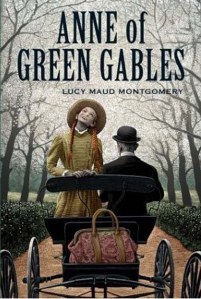 So I made the Best Books list by searching best-ofs lists from reputable sources, randomized it into an order 800 long, and started reading from number one, The Harmony of the World, by Johannes Keppler. Over the next two and half years, I supplemented for three reasons: my kids were reading something (and I make it a goal to read what they read); I enjoyed an author or series (from the list) so much I read more of them; or I had a personal reason that required a book (like taking a class or having a health problem). Occasionally, I accidentally acquired a book which was later on the randomized list, so I bumped it up the title. Other than that, I plowed straight ahead.
So I made the Best Books list by searching best-ofs lists from reputable sources, randomized it into an order 800 long, and started reading from number one, The Harmony of the World, by Johannes Keppler. Over the next two and half years, I supplemented for three reasons: my kids were reading something (and I make it a goal to read what they read); I enjoyed an author or series (from the list) so much I read more of them; or I had a personal reason that required a book (like taking a class or having a health problem). Occasionally, I accidentally acquired a book which was later on the randomized list, so I bumped it up the title. Other than that, I plowed straight ahead.
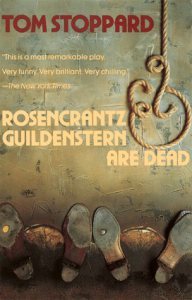 Over that two and a half years, I also added to the Best Books list by generating genre-specific lists for comedy, autobiographies and memoirs, travel, history, science fiction and fantasy, children’s, middle grades, and YA, poetry, and food and cookbooks. (There are still seven more lists to add, over time.) Then I copied the list to The Starving Artist TBR. The list is now thousands of books long, but I am still moving forward…
Over that two and a half years, I also added to the Best Books list by generating genre-specific lists for comedy, autobiographies and memoirs, travel, history, science fiction and fantasy, children’s, middle grades, and YA, poetry, and food and cookbooks. (There are still seven more lists to add, over time.) Then I copied the list to The Starving Artist TBR. The list is now thousands of books long, but I am still moving forward…
 …and really enjoying it. I would say that I enjoy most of the books that I read now, and have no pauses in between books. I went from slumping through (if I was lucky) a dozen “fun” books a year to reading more than forty every year (while also writing about one per year).
…and really enjoying it. I would say that I enjoy most of the books that I read now, and have no pauses in between books. I went from slumping through (if I was lucky) a dozen “fun” books a year to reading more than forty every year (while also writing about one per year).
Here is a short reflection of these last couple years:
 I am on book 112. I have read through several classics, including Jane Eyre, Wuthering Heights, Anna Karenina, and The Great Gatsby. I have read several series, have squeezed in some re-reads, and made some inroads into science fiction and fantasy, a genre I did not appreciate until more recently in life.
I am on book 112. I have read through several classics, including Jane Eyre, Wuthering Heights, Anna Karenina, and The Great Gatsby. I have read several series, have squeezed in some re-reads, and made some inroads into science fiction and fantasy, a genre I did not appreciate until more recently in life.
My favorites:
Anne of Green Gables, L.M. Montgomery (and series; re-read)
Rosencrantz & Guildenstern Are Dead, Tom Stoppard
The Great Gatsby, F. Scott Fitzgerald
Clarice Bean trilogy, Lauren Child
Ruby Redfort series, Lauren Child
Villette, Charlotte Bronte
The Tenant of Wildfell Hall, Anne Bronte
Harry Potter series, J.K. Rowling (re-read)
The Purpose Driven Life, Rick Warren
Secrets of E-Publishing Success, Mark Coker
Total Money Makeover, Dave Ramsey
More Attention, Less Deficit, Ari Tucker
Jump Off the Hormone Swing, Lorraine Pintus
Other books worth mentioning:
The Sound and the Fury, William Faulkner
Hamlet, William Shakespeare
My Teacher Is an Alien, Bruce Coville
Anna Karenina, Leo Tolstoy
A Night to Remember, Walter Lord
Ender’s Game, Orson Scott Card
Jane Eyre, Charlotte Bronte
Shirley, Charlotte Bronte
The Complete Sherlock Holmes, vols 1 and 2, Sir Arthur Conan Doyle
Wuthering Heights, Emily Bronte
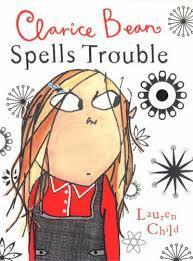 Agnes Grey, Anne Bronte
Agnes Grey, Anne BronteA Snicker of Magic, Nathalie Lloyd
Sisters, Raina Telgemeier
Real stinkers, despite their laurels:
Sybil, Benjamin Disraeli
some of the Jacqueline Wilson canon
a couple Henrik Ibsen plays (but not “A Doll’s House”)
The Cuckoo’s Calling, Robert Galbraith (J.K. Rowling), and pretty much anything not Harry
The Hero with a Thousand Faces, Joseph Campbell
The Secret Series, Psuedonymous Bosch
And not quite as adamantly, but still disappointing:
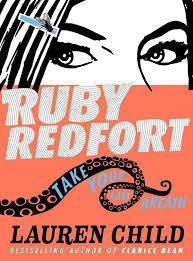 Fever 1793, Laurie Halse Anderson
Fever 1793, Laurie Halse AndersonWide Sargasso Sea, Jean Rhys
The Fault In Our Stars, John Green
The Professor, Charlotte Bronte
Books that I appreciate, but were BEARS to read:
Harmonies of the World, Johannes Kepler
Parade’s End tetrology, Ford Maddox Ford
Principia, Isaac Newton/Magnificent Principia, Colin Pask
(You can find reviews for all of these books HERE.)
I have also, happily, found some life’s work in the project. I used the inspiration of The Writer’s Journey to write half a book over Camp NaNoWriMo last summer and will be finishing it up soon. Also, this summer Owl and Zebra press will be publishing a re-print from a spin-off reading from the Best Books list. There will be more news on that soon. And I can only assume that–less definably–my writing has been affected by all the reading that I am doing. I will not be stopping any time soon. (For my TBR, see HERE.)
In short, I highly recommend making yourself a list of only greats and sticking to it. Or you could totally just borrow mine. You might just find that you read more, enjoy it more, and get more out of it.


July 9, 2015
The Book Review Directory
I have no recollection how I came across The Book Review Directory a couple months ago. It might have been while looking for readers to review my new novel, or it might have been someone approaching me through The Starving Artist. Either way, I like this website. Over time, I have come across a few other websites meant as a directory for book bloggers (which yes, we writers and publishers are often looking for), but those have tended to be large and largely unmonitored (with many broken links; I still use them, of course). Since The Book Review Directory is new, it is much smaller (which is not really a good thing) but also has no broken links and requires the reviewer’s site to be approved first.
 The Starving Artist is now on The Book Review Directory. The order of reviewer appearance is by when you submitted to be on the list, so as of now I am near the end of all the categories into which I fit, but will eventually rise closer to the top. Also, I am included not because I am looking for books to review (I don’t take suggestions), but because I have plenty of suggestions for other readers.
The Starving Artist is now on The Book Review Directory. The order of reviewer appearance is by when you submitted to be on the list, so as of now I am near the end of all the categories into which I fit, but will eventually rise closer to the top. Also, I am included not because I am looking for books to review (I don’t take suggestions), but because I have plenty of suggestions for other readers.
Check out The Book Review Directory here if you are interested in finding review or reviewers.
If you are interested in checking out some other review websites, here is a short list:
Book Blogger Directory
Book Blogging
The Book Blog Directory


July 7, 2015
Best Books: Food and Cook Books
Man do I love food. And I love cooking. I am what you would call a foodie. Therefore, it makes sense for me to include a food version of the Best Books list. If you enjoy food nearly as much as I do, you might appreciate this list.
Surprisingly, I have not read very many of these. I loved Animal Vegetable Miracle, enjoyed The Omnivore’s Dilemma, and pretty much liked Julie and Julia. And now I am dying to read not only Anthony Bourdain’s food memoir, but also his novel (!?). Babette’s Feast is one of my favorite movies, so I am looking forward to reading that one as well as re-reading The Joy Luck Club. I will admit that Harry Potter was in my mind the whole time I was making the novels list and finally, there it was, with Charlie and the Chocolate Factory and Ulysses. Huh. (I also had my own novel, Benevolent, in my mind, and the character of Melodie.)
Memoirs at the top, followed by novels and then cookbooks.
Food Memoirs
Cooked, Michael Pollan

Yes, Chef, Michael Samuelsson
Fast Food Nation, Eric Schlosser
The Physiology of Taste, Jean Anthelme Brillat-Savarin
The Man Who Ate Everything, Jeffrey Steingarten
The Minotaur Takes a Cigarette Break, Steven Sherrill
The Omnivore’s Dilemma, Michael Pollan
Kitchen Confidential, Anthony Bourdain
Hangover Square, Patrick Hamilton
A Long Finish, Michael Dibdin
Judgement of Paris, George M. Taber
Eating with the Pilgrims and Other Pieces, Calvin Trilin

An Omelette and a Glass of Wine, Elizabeth David
Heat, Bill Buford
Toast, Nigel Slater
The Table Comes First, Adam Gopnik
Blood, Bones, and Butter, Gabrielle Hamilton
Delights and Prejudices, James Beard
Tender at the Bone, Ruth Reichi
A Pig in Provence, Georgeanna Brennan
Shark’s Fin and Sichuan Pepper, Fuschia Dunlop
Climbing the Mango Tree, Madhur Jaffrey
My Life in France, Julia Child
A Devil in the Kitchen, Marco Pierre White

The Art of Eating, M.F.K. Fisher
Julie and Julia, Julie Powell
The Feast Nearby, Robin Mather
A Tiger in the Kitchen, Cherly Lu-Lien Tan
Untangling My Chopsticks, Victoria Abbott Riccardi
Home Cooking, Laurie Colwin
Honey from a Weed, Patience Gray
Born Round, Frank Bruni
Animal Vegetable Mineral, Barbara Kingsolver
The Fortune Cookie Chronicles, Jennifer B. Lee
The Supper of Lamb, Robert Farrar Capon
The Unprejudiced Palate, Angelo Pellegrini

The Gastronomy of Marriage, Michelle Maisto
Tails of Crumbs, Kim Sunee
The Sharper Your Knife, the Less You Cry, Kathleen Flinn
Four Kitchens, Lauren Shockey
The Apprentice, Jacques Pepin
The Raw and the Cooked, Jim Harrison
Spilling the Beans, Clarissa Dickson Wright
A Homemade Life, Molly WIzenberg
I Loved, I Lost, I Made Spaghetti, Giulia Melucci
The Sweet Life in Paris, David Lebovitz
Shucked, Erin Byers Murray

52 Loaves, William Alexander
Blue Trout and Black Truffles, Joseph Wechsberg
Eating for Britain, Simon Majumdar
Living in a Foreign Language, Michael Tucker
As They Were, M.F.K Tucker
My Kitchen Wars, Betty Fussell
My Life from Scratch, Gesine Bullock-Prado
Mostly True, Molly O’Neill
Save the Deli, David Sax
The Year of Eating Dangerously, Tom Parker Bowles
The 100-Mile Diet, J.B. MacKinnon

Fresh Off the Boat, Eddie Huang
Down and Out in Paris and London, George Orwell
The Telling Room, Michael Paterniti
Blue Plate Special, Kate Chistensen
Home Cooking, Laurie Colwin
Alice, Let’s Eat, Calvin Trillin
California Dish, Jeremiah Tower
When French Women Cook, Madeliene Kamman
Between Meals, A.J. Leibling
The Gastronomical Me, M.F.K. Fisher
Alone in the Kitchen with an Eggplant, Jenni Farrari-Adler

Service Included, Pheobe Damrosch
Cooking for Mr. Latte, Amanda Hesser
Food Fiction
The Belly of Paris, Emile Zola
American Psycho, Bret Easton Ellis
One Hundred Foot Journey, Richard Morais
The Alienist, Caleb Carr
Gourmet Rhapsody, Muriel Barbery
A Moveable Feast, Ernest Hemingway

The Last Chinese Chef, Nicole Mones
Ham on Rye, Charles Bukowski
The Joy Luck Club, Amy Tan
The Lost Art of Mixing, Erica Bauermeister
The Girls Guide to Love and Supper Clubs, Dana Bate
The Dinner, Herman Koch
Tattoo, Manuel Vasquez Montalban
An Evil Eye, Jason Goodwin
Cinnamon and Gunpowder, Eli Brown
The Epicure’s Lament, Kate Christensen
The Passionate Epicure, Marcel Raouff

St. Burl’s Obituary, Daniel Akst
The Debt to Pleasure, John Lanchester
High Bonnet, Idwal Jones
The Particular Sadness of Lemon Cake, Aimee Bender
Babette’s Feast, Isaak Denison
Chef, Jaspreet Singh
The Flounder, Gunter Grass
Mistress of Spices, Chitra Divakaruni
Kitchen, Bannan Yashimoto
Fried Green Tomatoes at the Whistle-Stop Cafe, Fannie Flagg
Eat Cake, Jeanne Ray

My Year of Meats, Ruth Ozeki
The Book of Salt, Monique Truong
The Discovery of Chocolate, James Runcie
The Cupcake Queen, Heather Hepler
Five Quarters of the Orange, Joanne Harris
In the Kitchen, Moica Ali
Mangoes and Quince, Carol Field
Liquor, Poppy Brite
Blue Plate Special, Frances Norris
World of Pies, Karen Stolz

Chocolat, Joanna Harris
Bone In the Throat, Anthony Bourdain
Like Water for Chocolate, Laura Esquivel
The Cuttlefish, Maryline Desbiolles
Pomegranate Soup, Marsha Mehran
Debt to Pleasure, John Lanchester
Heatburn, Nora Ephron
Pow!, Mo Yan
The Book of Salt, Monique Truong
Ulysses, James Joyce

John Saternall’s Feast, Lawrence Norfolk
Redwall, Brian Jacques
Gargantua and Pantagruel, Francios Rabelais
The Devil’s Larder, Jim Crace
Farmer Boy, Laura Ingalls Wilder
Cooking with Fernet Branca, James Hamilton-Patterson
The Edible Woman, Margaret Atwood
Kitchen, Banana Yoshimoto
Edible Stories, Mark Kurlansky
Moby Dick, Herman Melville
The Corrections, Jonathan Franzen
The Food of Love, Anthony Capella

Charlie and the Chocolate Factory, Roald Dahl
White Truffles in Winter, N.M. Kelby
Swann’s Way, Marcel Proust
Saturday, Ian McEwan
La Cucina, Lily Prior
The Food Chain, Geoff Nicholson
The Cookbook Collector, Allegra Goodman
Lives of Notorious Cooks, Brendan Connell
The School of Essential Ingredients, Erica Bauermeister
Alice in Wonderland, Lewis Caroll
Goodbye, Columbus, Philip Roth

The Fellowship of the Ring, J.R.R. Tolkein
A Christmas Carol, Charles Dickens
Appetite, Philip Kazan
The Chef’s Apprentice, Elle Newmark
Crescent, Diana Abu-Jaber
Harry Potter and the Prisoner of Azkaban, J.K. Rowling
Hunger, Jane Ward
Cookbooks
The Smitten Kitchen Cookbook, Deb Perelman
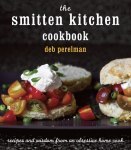
Baking, Dorie Greenspan
How to Bake, Nick Malgieri
The Flavor Thesaurus
Super Natural Cooking, Heidi Swanson
*The Joy of Cooking, Irma S. Rambauer
Martha Stewart’s Hor d’ouvres Handbook, Martha Stewart
*Mastering the Art of French Cooking, Julia Child
Plenty, Yotam Ottolenghi
English Food, Jane Grigson
Ready for Dessert, David Leibovitz
How to Cook Everything, Mark Bittman

A Year In My Kitchen, Skye Gyngell
New Cookbook Gifts from the Kitchen, Better Homes and Gardens
*Whole Grain Baking, King Arthur Flour
*The New Book of Middle Eastern Food, Claudia Roden
The 1896 Boston Cooking School Cookbook, Fannie Merritt Farmer
*Authentic Mexican, Rick Bayless
All About Braising, Molly Stevens
One Spice, Two Spice, Floyd Cardoz
Land of Plenty, Fucshia Dunlop
*American Cookery, James Beard
*Essentials of Classic Italian Cooking, Marcella Hazan
1000 Indian Recipes, Neelam Batra

La Guide Culinaire, Escoffier
The Modern Vegetarian Kitchen, Peter Berley
The Essential Cocktail, Dale Degroff
Recipes for a Small Planet, Ellen Buchman Ewald
*Classic Indian Cooking, Julie Sanhi
Sunday Suppers at Lucques, Suzanne Coin
Catalan Cuisine, Colman Andrews
The Virginia Housewife, Mary Randolph
The Calcutta Kitchen, Simon Parkes
The New York Times Cookbook, Craig Claiborne
Into the Vietnamese Kitchen, Andrea Nyguen
Southern Table, Frank Stitt
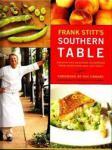
1080 Recipes, Phaidon
Bouchon, Thomas Keller
Thai Food, David Thompson
*Vegetarian Cooking for Everyone, Deborah Madison
The Art of Mexican Cooking, Diana Kennedy
French Provincial Cooking, Elizabeth David
The Art of Simple Food, Alice Waters
Cradle of Flavor, James Oseland
Louisiana Kitchen, Paul Prudhomme
The Slow Mediterranean Kitchen, Paula Wolfert
Fire and Spice, Joyce Westrip
The Breath of a Wok, Grace Young
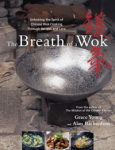
Sundays at Moosewood Restaurant, Moosewood Collective
The Gift of Southern Cooking, Edna Lewis
An Invitation to Indian Cooking, Madhur Jaffrey
The Soul of a New Cuisine, Marcus Sameulsson
Who’s Your Mama, Are You Catholic, and Can You Make a Roux?, Marcella Bienvenu
My Kitchen In Spain, Janet Mendel
The Silver Spoon, Phaidon
Great Dishes of the World, Robert Carrier
Sichuan Cookery Fuchsia Dunlop
Thai Food, David Thompson
Roast Chicken and Other Stories, Simon Hopkinson
Kitchen Diaries, Nigel Slater
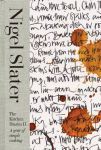
The Book of Jewish Food, Claudia Roden
The French Menu Cookbook, Richard Olney
*Momofuku, David Chang
Opera Dell’Arte del Cucinare, Bartemelo Scappi
The Handmade Loaf, Dan Lepard
With Bold Knife and Fork, M.F.K. Fisher
Catalan Cuisine, Colman Andrews
Action Cookbook, Len Deighton
Indian Vegetarian Cookery, Jack Santa Maria
How to Eat, Nigella Lawson
French Cooking in Ten Minutes, Edouard de Pomaine
On Food and Cooking, Harold McGee

The Independent Cook, Jeremy Round
Mediterranean Seafood, Alan Davidson
Plats du Jour, Patiance Gray
*The River Cottage Meat Book, Hugh Fernley-Wittingsall
La Cuisine Gourmande, Michel Guerard
Japanese Cooking, Shizuo Tsuji
The Greens Cookbook, Deborah Madison
The Cook’s Companion, Stephanie Alexander
Pork and Sons, Stephanie Reynaud
Keep It Simple, Alastair Little
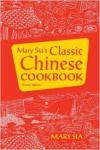
Moro, Sam and Sam Clark
Les Secrets of the Mere Brazier, Roger Moreau
Classic Chinese Cookbook, Yan-Kit So
Traditional Spanish Cooking, Janet Mendel
The Complete Guide to the Art of Modern Cooking, Auguste Escoffier
Nose to Tail Eating, Fergus Henderson
The Four Seasons Cookery Book, Margaret Costa
Good Things in England, Florence White
The Rice Book, Sri Owen
A Platter of Figs and Other Recipes, David Tanis
English Seafood Cookery, Rick Stein
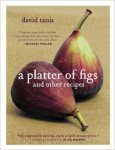
Jamie’s Italy, Jamie Oliver
The Constance Spry Cookery Book, Rosemary Hume
The Complete Robuchon, Joel Robuchon
Delia’s Complete How to Cook, Delia Smith
Chez Panisse Menu Book, Alice Waters
101 Classic Cookbooks, The Fales Library
My Own Additions to Cookbooks
Momofuku Milk Bar, Christina Tosi
The Just Bento Cookbook, Makiko Ito
The Thousand Recipes Chinese Cookbook, Gloria Bley Miller
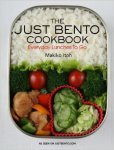
660 Curries, Raghavan Iyer
Martha Stewart’s Cookies, Martha Stewart Magazine
The Sweet Book of Candy Making, Elizabeth LaBau
Veginomicon, Isa Chandra Muskowitz
Japanese Soul Cooking, Tadashi Ono
The New Midwestern Table, Amy Thielen
The Smoothies Bible, Pat Croker
The Kimchi Chronicles, Marha Vonderichten
Serious Barbeque, Adam Perry Lang
The Craft of the Cocktail, Dale DeGroff
The French Laundry Cookbook, Thomas Keller
Healthy Bread in Five Minutes a Day, Jeff Hertzberg
Polish Classic Recipes, Peter Zeranski
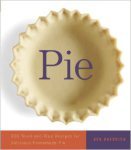
The Complete Book of Greek Cooking, Recipe Club of St. Paul’s Church
Pie, Ken Heidrich
The Irish Pub Cookbook, Margaret M. Johnson
The German Cookbook, Mimi Sheraton
Irish Traditional Cooking, Darina Allen
Jerusalem, Yotam Ottolengi
Good Eats complete collection, Alton Brown
Moosewood Restaurant Cooks at Home, Moosewood Collective
Eat, Shrink, and Be Merry, Janet Podleski
In the Kitchen, Greene on Green, and anything else Bert Greene

Nourishing Traditions, Sally Fallon
Local Flavors, Deborah Madison
World Vegetarian, Madhur Jaffrey
The Bread Lover’s Bread Machine Cookbook, Beth Hensperger
Home Cheese Making, Ricki Carrol
Pok Pok, Andy Ricker
Mastering the Art of Southern Cooking, Nathalie Dupree
*This little star means I already own or am in the market for this cookbook.


June 24, 2015
Best Books: Poetry
For the best books list of poetry, I broke the list into poets, books of poetry, and anthologies. It’s hard to separate one from another, but I didn’t want to just grab best books of poetry when a beloved poet might not get included. I also didn’t want to skip over all the great poetry anthologies, which is where I have read most of my most beloved poetry and poets. So here it is.
POETRY BOOKS:
Lighthead, Terrence Hayes

Praise, Robert Hass
The Book of Nigthmares, Galway Kinnell
Twenty Love Poems and a Song of Despair, Pablo Neruda
Ariel, Sylvia Plath
The Complete Poems, Emily Dickinson
Howl and Other Poems, Allen Ginsberg
Mother Love, Rita Dove
Mountain Interval, RObert Frost
Where the Sidewalk Ends, Shel Silverstein
Sinners Welcome, Mary Karr

The Dream of a Common Language, Adrienne Rich
Leave of Grass, Walt Whitman
Autobiography of Red, Anne Carson
Antidote, Corey Van Landingham
Dance Dance Revolution, Cathy Park Hong
The Dream Songs, John Berryman
No Planets Strike, Josh Bell
Metamorphoses, Ovid
My Life, Lyn Hejinian
The Sonnets, William Shakespeare
The Morning of the Poem, James Schuyler

The Wasteland and Other Poems, T.S. Eliot
Lunch Poems, Frank O’Hara
Self Portrait in a Convex Mirror, John Ashberry
The Wild Iris, Louise Gluck
alphabet, Inger Christensen
View with a Grain of Sand, Wislawa Szymborska
Native Guard, Natasha Trethewey
100 Selected Poems, E.E. Cummings
The Master Letters, Lucie Brock-Broido
Life on Mars, Tracy K. Smith
The Essential Rumi, Rumi

Ooga-Booga, Frederick Seidel
Head Off & Split, Nikky Finney
Annie Allen, Gwendolyn Brooks
American Primitive, Mary Oliver
The Collected Poems of Langston Hughes, Langston Hughes
Spring and All, William Carlos Williams
The Complete Poems, John Keats
Stag’s Leap, Sharon Olds
Coal, Audre Lorde
Sonnets to Orpheus, Rainer Maria Rilke

Collected Poems, Wallace Stephens
New and Selected Poems, Charles Simic
What the Living Do, Marie Howe
Opened Ground, Seamus Heaney
Poems, Elizabeth Bishop
Just Give Me a Cool Drink of Water ‘Fore I Diiie, Maya Angelou
The Complete English Poems, John Donne
The Selected Poems of Li Po, Li Po
Paradise Lost, John Milton
Lyrical Ballads, William Wordsworth and Samuel Taylor Coleridge

Don Juan, Lord Byron
Eugene Onegin, Alexander Pushkin
The Man with Night Sweats, Thom Gunn
The Waste Land, T.S. Eliot
Howl, Kaddash, and Other Poems, Allen Ginsberg
Birthday Letters, Ted Hughes
Dart, Alice Oswald
Family Values, Wendy Cope
The Divine Comedy, Dante
Songs and Sonnets, John Donne

Faust, Johann Wolfgang von Goethe
Les Fleurs de Mal, Charles Beaudelaire
Selected Poems, John Clare
Montage of a Dream Deferred, Langston Hughes
Station Island, Seamus Heaney
The Golden Gate, Vikram Seth
Selected Poetry, Yehuda Amichai
White Egrets, Derek Wallcot
The Complete Poems, Elizabeth Bishop
Migration, W.S. Merwin

The Complete Collected Poems of Maya Angelou, Maya Angelou
Selected Poems, Frank O’Hara
The Wind Blows Through the Doors of My Heart, Deborah Digges
A New Selected Poems, Galway Kinnell
The Poetry of Robert Frost, Robert Frost
The Best of It, Kay Ryan
Dream Work, Mary Oliver
The Essential Gwendolyn Brooks, Gwendolyn Brooks
Selected Poems, WIlliam Carlos Williams
Lyrical Ballads, Anonymous

Lamia, Isabella, The Eve of St Agnes and Other Poems, John Keats
Poems, Chiefly Lyrical, Alfred Lord Tennyson
North of Boston, Robert Frost
Poems, Edward Thomas
Poems, W.H. Auden
The Less Deceived, Philip Larkin
North, Seamus Heaney
The Psalms, the Bible
Collected Poems, T.S. Eliot
Poems from the Book of Hours, R.M. Rilke

Poems by George Seferis, George Seferis
Collected Poems, Edward Thomas
Collected Poems, W.H. Auden
Collected Poems, Dylan Thomas
Collected Poems, Bernard Spencer
Life Studies, Robert Lowell
Collected Poems, Philip Larkin
This list of poets is taken directly from Poetry Soup, because I thought it was pretty good. POETS:
Maya Angelou
Emily Dickenson
Shel Silverstein
Ben Jonson
Edgar Allan Poe
Lascelles Abercrombie
Robert Frost
Sarah Fuller Flower Adams
William Shakespeare
Pablo Neruda
E E Cummings
Delmira Augustini
Langston Hughes
Jane Austen
Walt Whitman
Anna Akhmatova
Robert Burns
Julie Hill Alger
Thomas Hardy
Rudyard Kipling
Oscar Wilde
John Keats
Elizabeth Barrett Bronwing
Billy Collins
William Blake
Sylvia Plath
Henry Wadsworth Longfellow
Gary Soto
William Wordsworth
Carol Ann Duffy
Phyllis Wheatley
Sandra Cisneros
Rabidranath Tagore
Matthew Arnold
Mark Twain
Louisa May Alcott
Ralph Waldo Emerson
Sara Teasedale
Conrad Aiken
John Donne
William Butler Yeates
Sir Walter Raleigh
Lord George Byron
Homer
Lewis Carroll
Alfred Lord Tennyson
Dante Alighieri
Alice Walker
W.H. Auden
Sappho
POETRY ANTHOLOGIES, including childrens':
Poetry by Heart, Scholastic

Around the World in Eighty Poems, Chronicle
Big, Bad and a Little Bit Scary, Viking
Poems by Adolescents and Adults, NCTE
Word of Mouth, Vintage Books
Poetry for Extraordinary Times, Random House
A Jar of Tiny Stars, Boyds Mill Press and NCTE
Poems Inspired by the Life and Work of Walt Whitman, University of Iowa Press
Unsettling America, Penguin Books
Spirit and Flame, Syracuse University Press
The Poetry of Arab Women, Interlink Publishing Group
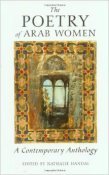
My Song Is Beautiful, Little, Brown and Co.
The Kingfisher Book of Family Poems, Kingfisher
Through Our Eyes, Little, Brown and Company
Lives, HarperCollins Publishers
Teaching With Fire, Jossey-Bass
Good Poems, Viking Press
A Family of Poems, Caroline Kennedy
Talking to the Sun, Henry Holt and Company
On City Streets, Bantam Books
Countdown to Summer, Little, Brown and Co.
Poems to Live By in Uncertain Times, Beacon Press

This Same Sky, Four Winds Press
Imagination’s Other Place, Thomas Y. Cromwell Company
The Invisible Ladder, Henry Holt and Co.
Truth and Lies, Henry Holt and Company
…I never saw another butterfly…, Schocken Books
Sky Scrape/City Scrape, Boyds Mills Press
Mother Earth, Father Sky, Boyds Mill Press
The Poetry of Birds, Penguin Books Ltd.
The Best American Poetry (series), Scribner
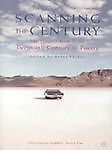
Poems on the Underground
Scanning the Century, Penguin
The Rattle Bag, Faber & Faber
Wild Reckoning, Calouste Gulbenkian Foundation
Vanishing Points, Salt Publishing
The Norton Anthology of Poetry, Norton and Co.
The Oxford Book of Twentieth Century English Verse, Oxford University Press
Trees Be Company
A World of Poetry, Royal Fireworks Press
Being Alive and Staying Alive, Bloodaxe Books
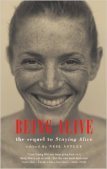
Earth Songs, Scholastic
Bestiary
Luckenbooth, Birlinn Ltd
The Barefoot Book of Classic Poems, Barefoot Books
I’ve Got a Poem for You, Oxford University Press
The Oxford Treasury of Classic Poems, Oxford University Press
The 20th Century Children’s Poetry Treasury, Knopf Books for Young Readers
The Invisible Ladder, Henry Holt and Co.
Sing a Song of Popcorn, Scholastic Press
A Child’s Anthology of Poetry, Deckle Edge/Ekko

Bum Rush the Page, Ramdom House
A Book of Luminous Things, Harcourt
Americans’ Favorite Poems, Norton & Co
City Lights Pocket Poets Anthology, City Lights Books
Writing To Be Seen, Light & Dust Books
Poems for the Millennium, University of California Press
Committed to Memory, Turtle Point Press
Poetry Slam, Manic D Press
For best POEMS, you could read one of the recommend general anthologies or see Best Poems Encyclopedia for best 100 lists by genre, etc.


June 22, 2015
Book Review: The Tenant of Wildfell Hall
 The Tenant of Wildfell Hall by Anne Bronte, first published in 1848, and then again in 1994 by Wordsworth Classics in the edition I read it.
The Tenant of Wildfell Hall by Anne Bronte, first published in 1848, and then again in 1994 by Wordsworth Classics in the edition I read it.
So glad this book is still in print. Really, really enjoyed it. Even while on vacation–flying from flat-bottomed boat rides to water parks–I could not put this book down. I white-knuckled most of it, after it warmed up (as every single Bronte book has to do). In it, Anne really masters the art of story-telling at a level that none of the other Bronte books reaches. It keeps you guessing, keeps you sighing and cringing and gasping, all the way through every twist and turn.
It is a pity, of course, that this book ruined Anne Bronte. The topics were considered riske and inappropriate for the time period, even though they were starkly honest, and older sister Charlotte considered the publication of the book before Anne’s untimely death a great mistake. Bummer. I am so glad it was published, Charlotte, with all of its affairs (dealt with in a way only a Victorian could do), psychological and emotional abuse, heart break, and sad desperation.
I don’t even know if I have much else to say. It is deeply religious (which I enjoy, but others might not). I would recommend that anyone who enjoys the genre run out and pick up a copy right away. It is greatly insightful and interesting. I might not have loved all the characters, but they were delivered with such empathy and with such natural foibles you root for them anyways. And humor! Without making you think this is a funny book (it’s not), many of the twists and supporting characters are imbued with a sort of tragi-comedy that is deft and thrilling. And frankness. Especially for the time, this book is frank while at the same time pulling lines of Victorian restriction so taught you believe for awhile that they can never be severed or, indeed, loosened.
Once again, I would not read the back of the book (or the Amazon synopsis) because it contains some spoilers. Just know that the book is a letter from one Gilbert Markham to his brother-in-law, relating the events of a few years in Gilbert’s youth when he was settling into gentleman-farming in a rural area of England. Into the neighborhood steals a mysterious woman–the tenant of Wildfell Hall–who is immediately secretive, reserved, and even antagonistic. Eventually, she is pestered enough by the scant, but nosy, neighbors, and reveals her story (which takes up more than half the book) to the concerned gentleman.
_______________
Will be watching the three-episode BBC miniseries as soon as my husband rotates back around to the night shift. Then I will review it for you.
_______________
QUOTES:
“‘The foundation is in the wickedness and falsehood of the world'” (p70).
“‘I was not indifferent to her,’ as the novel heroes modestly express it” (p74).
“A girl’s affections should never be won unsought” (p103).
“What can’t be cured must be endured” (p147).
“…for the more you loved your God the more deep and pure and true would be your love to me” (p160).
“Such vain presumption would be rightly served, if I should perish with him in the gulf from which I sought to save him! Yet, God preserve me from it!–and him too” (p206).
“Yes, and I will drink it to the very dregs: and none but myself shall know how bitter I find it!” (p211).
“…but indeed, it is nonsense to talk about injuring no one but yourself; it is impossible to injure yourself–especially by such acts as we allude to–without injuring hundreds, if not thousands besides, in a greater or less degree, either by the evil you do or the good you leave undone” (p228).
“Instead of my being humbled and purified by my afflictions, I feel that they are turning my nature into gall. This must be my fault as much as theirs that wrong me” (p247).


June 15, 2015
Book Reviews: The Professor and Villette
 This review is for two books by Charlotte Bronte: The Professor and Villette. I read them in the Wordsworth Classic version (with a blue cover, not black) and the Bantam Classic version, respectively. The books were originally published in 1857 and 1853. Although The Professor was written before Charlotte Bronte’s other novels, it was repeatedly rejected and then published posthumously. I feel it is quite safe to review these two books together, since they are very similar, and I wonder if Villette was actually an attempt to re-write The Professor from a different perspective with some plot changes and the lens of maturity.
This review is for two books by Charlotte Bronte: The Professor and Villette. I read them in the Wordsworth Classic version (with a blue cover, not black) and the Bantam Classic version, respectively. The books were originally published in 1857 and 1853. Although The Professor was written before Charlotte Bronte’s other novels, it was repeatedly rejected and then published posthumously. I feel it is quite safe to review these two books together, since they are very similar, and I wonder if Villette was actually an attempt to re-write The Professor from a different perspective with some plot changes and the lens of maturity.
If what I just suggested is true, then my basic opinion of these two books justifies Bronte’s decision; The Professor is only okay. Villette is wonderful. In the past two-and-a-half years of reading and reviewing, only one other book–The Great Gatsby–has come so close to making it to my list of very-favorite books. As it stands, I highly recommend Villette for anyone who enjoys Victorian literature. As for The Professor, unless you are studying Charlotte or the Brontes, you can leave it.
Issue number one: French. A fair amount of dialogue in both books is, indeed, in French. Being that I took no less than seven years of French and have studied in Paris (a very long time ago), I was able to work out bits of it with the help of a phone app. As for the long paragraphs, I tired of thumbing in phrase after phrase and just relinquished the section with an irritated sigh. Sure, I get that these books take place largely in French-speaking areas (Belgium and France), and also that speaking French was en vogue at the time, but what I don’t get is why publishers are printing it now for English-speakers without translation of the French parts. It is quite irksome, especially when many of the French parts are in French for emphasis, so the dramatic sentence is perhaps the most important in the chapter, but you can’t read it. Oi.
Second, I am just so tired of the whole physiognomy thing. Physiognomy is defined by Wikipedia as the “assessment of a person’s character or personality from his or her outer appearance, especially the face.” These days, we call that judging a book by its cover and we not only believe it poor taste, but also (rightly so) inaccurate. Authors of the 19th century, however, considered it a normal part of everyday life, and have no issues making characters the sum of their features. After every Bronte book in the world and all of Sherlock Holmes, I have had it up to HERE with physiognomy.
Third, Bronte is a bit of a culture snob. She paints whole countries of people with a monochromatic paintbrush. With one swoop of her pen, she portrays the Belgians as dumb and ignorant, incapable of depth and intelligence. Not cool. But not completely distracting.
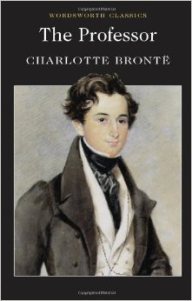 Fourth, Bronte is very fond of having segments of her novels that are extra-plot, like in Jane Eyre when Jane goes to her cousins’ home. In both The Professor and Villette, the opening is basically a side-story, and it is a while before we see the real plot and identify the supporting characters. Back in the day, readers didn’t have as many options, so they patiently read what was available to them. The cover, the first line, the first few chapters–in fact the whole book–did not have to be so absolutely gripping as it does today. So it takes some patience. Let me just assure you that Villette will pay off, eventually, as many Victorian novels do.
Fourth, Bronte is very fond of having segments of her novels that are extra-plot, like in Jane Eyre when Jane goes to her cousins’ home. In both The Professor and Villette, the opening is basically a side-story, and it is a while before we see the real plot and identify the supporting characters. Back in the day, readers didn’t have as many options, so they patiently read what was available to them. The cover, the first line, the first few chapters–in fact the whole book–did not have to be so absolutely gripping as it does today. So it takes some patience. Let me just assure you that Villette will pay off, eventually, as many Victorian novels do.
Fifth, both books take some swallowing when it comes to the intellectual and mental submission of the women and the intellectual and mental domination of the men. Of course, Bronte was ahead of her times with her more independent, free-thinking, and intellectual women characters, but there is still a general fragrance of women submitting themselves as a matter of course, even if they are more open-minded than their peers, especially in marriage and the nuclear family. It’s odious to the modern reader, and yet it is worth nothing to oneself that the Brontes are a step UP on the ladder to equality of the sexes, and that their works are full of vivid, colorful, intelligent, strong women characters, Villette bringing us one of the best in Lucy Snowe (despite all of her “humble” claims to the contrary).
So I’m not going to say much else about The Professor. It was fine. You will probably enjoy it a bit if you have to read it for whatever reason. It’s not very long. But what I would not recommend is reading it after Villette, because, like I said, they are almost the same book with the main difference being that one of them is superior in almost every single way.
 As for Villette, I loved it. I do have very mixed feelings about the ending, which you might as well be told now was way before its time: it is inconclusive, on purpose. The book started slow, like I said, but it got better and better with each turn of the page, until I was holding my breath between the stolen moments when I could read another chapter. I finished the whole book hunched over my copy in front of a WholeFoods, oblivious to everything else for four hours. Bronte really learned to nail the “black moment” or whatever it’s called (when the romance looks like it just can’t happen). Characters really pop. There’s a breath of the Gothic, a subtlety of voice, and a real mastery of suspense. And all in all, I don’t know why it’s not twice as famous as other books of the same genre, including Jane Eyre and Wuthering Heights. It is both opaque and revealing, sophisticated, and symbolic.
As for Villette, I loved it. I do have very mixed feelings about the ending, which you might as well be told now was way before its time: it is inconclusive, on purpose. The book started slow, like I said, but it got better and better with each turn of the page, until I was holding my breath between the stolen moments when I could read another chapter. I finished the whole book hunched over my copy in front of a WholeFoods, oblivious to everything else for four hours. Bronte really learned to nail the “black moment” or whatever it’s called (when the romance looks like it just can’t happen). Characters really pop. There’s a breath of the Gothic, a subtlety of voice, and a real mastery of suspense. And all in all, I don’t know why it’s not twice as famous as other books of the same genre, including Jane Eyre and Wuthering Heights. It is both opaque and revealing, sophisticated, and symbolic.
Besides what I mentioned above, I would like to complain that there were a couple things incommodiously withheld (like the narrator doesn’t give us hints about something until it’s like, “Oh yeah, that. I knew it all along but I didn’t feel like telling you yet”). The rest, perfectly timed and communicated.
Always books of the time period of the Brontes spend a bit too much time telling, but the real knack of Villette and similar books is in the slight-hand of metaphor and double entendre. Charlotte Bronte masters this technique in Villette. Just like Jane Eyre and basically all the Bronte’s books (especially Wuthering Heights), the narrator or character might say one thing but mean another, or think/portray one thing but by doing so, subtly reveal the opposite. The language acrobatics are amazing.
Lucy Hughes Hallett wrote in The Telegraph, “[Bronte] honours Lucy’s urge to conceal herself from us, but–with masterful duplicity–refuses to allow it. Try as she might to pass herself off as a dull, quiet little person, the vigour of Lucy Snowe’s true nature keeps showing through the narrative Brontë has ascribed to her.”
Lastly, since I have found that the synopses of the classics on the backs of the books tend to give away the best twists of the story, I am going to five you my synopses for these two novels:
The Professor is about a younger brother without a family, a station, or a future. With what little he has–including a solid education and a small savings–he buys a one-way ticket to the continent and seeks employment in a boys’ school. The last thing on his mind is romance and expansion, but with hard work and English manners there is little of life’s simple pleasures that can’t, eventually, open up to him.
Villette is a story about Lucy Snowe, a young woman who is alone in the world but is determined to find a way to support herself while remaining dignified. She remembers her first days after tragedy, staying with her warm, hospitable god-mother, her busy, flitting god-brother, and the mysterious, particular child, Polly. Fate and determination guide her as she seeks a life in a new country, one without–as she knows it–a friend or a friendly face. She faces mental breakdown and religious quandaries, and gives us an honest and fascinating glimpse into the inner workings of a “stoical but not stoic” woman. As an employ of a girls’ school, Lucy begins to construct a life and a future for herself out of the people around her, watching as romance and favor pass her by time and time again.
_______________
QUOTES:
THE PROFESSOR
“…better to be misunderstood now than repulsed hereafter” (p15).
“No man likes to acknowledge that he has made a mistake in the choice of his profession, and every man worthy of the name will row long against wind and tide before he allows himself to cry out, ‘I am baffled!’ and submits to be floated passively back to land” (p20).
“Pity Fortune has balked Nature!” (p26).
“‘Well,’ said he, ‘in all this I see but one thing clearly–that is, that the whole affair is no business of mine'” (p37).
“I never linger over a painful and necessary task; I never take pleasure before business. It is not in my nature to do so” (p42).
“It is a bad omen to commence any career by hesitation” (p45).
“Light not being taxed in Belgium, the people never grudge its admission into their houses” (p47).
“So impressionable a being is man, or at least such a man as I was in those days” (p58).
“Human beings–human children especially–seldom deny themselves the pleasure of exercising a power which they are conscious of possessing, even though that power consists only in a capacity to make others wretched” (p96).
“Distasteful effort–to leave what we most prefer” (p108).
“Indisputably, mademoiselle,’ was my answer. ‘Your opinion admits of no doubt;’ and fearful of the harangue being renewed, I retreated under cover of that cordial sentence of assent” (p111).
“Far more is to be done in this world by dexterity than by strength” (p115).
“‘Hope smiles on effort!'” (p133).
“Examine the footprints of our august aristocracy; see how they walk in blood, crushing hearts as they go” (p175).
“Though the only road to freedom lie through the gates of death, those gates must be passed, for freedom is indispensable. Then, monsieur, I would resist as far as my strength permitted; when that strength failed I should be sure of a refuge. Death would certainly screen me both from bad laws and their consequences” (p190).
VILLETTE
“Tell it not in Gath, I believe I was crying” (p77).
“That hag disappointment was greeting her with a grisly ‘all hail!’ and her soul rejected the intimacy” (p106).
“That evening more firmly than ever fastened into my soul the conviction that Fate was of stone, and Hope a false idol—blind, bloodless, and of granite core” (p166).
“…that insufferable thought of being no more loved, no more owned, half-yielded to hope of the contrary” (p166).
“Where, indeed, does the moon not look well?” (p190).
“A pink dress! I knew it not. It knew not me. I had not proved it” (p216).
“He always wished to heal—to relieve—when, physician as he was, neither cure noR alleviation were, perhaps, in his power” (p239).
“Happiness is not a potato, to be planted in mould, and tilled with manure. Happiness is a glory shining far down upon us out of Heaven” (p263).
“Doctors are so self-opinionated, so immovable in their dry, materialist views” (p270).
“Though stoical, I was not quite a stoic” (p311).
“Whatever my powers—feminine or the contrary—God had given them, and I felt resolute to be ashamed of no faculty of his bestowal” (374).
“But afterwards, is there nothing more for me in life—no true home—nothing to be dearer to me than myself…?” (p384).
“It is right to look our life-long accounts bravely in the face now and then, and settle them honestly” (p384).
“Call anguish—anguish, and despair—despair; write both down in strong characters with a resolute pen” (p385).
“Offer to the strongest, if the darkest angel of God’s host—water, when he asked blood—will he take it? Not a whole pale sea for one red drop” (p385).
“Life is so constructed, that the event does not, cannot, will not, match the expectation” (p437).
“…that there is a Mercy beyond human compassions, a Love stronger than this strong death which even you must face, and before it, fall; a Charity more potent than any sin, even yours; a Pity which redeems worlds—nay, absolves Priests” (p449).
“…to Him whose home is Infinity, and his being—Eternity” (p450).
“How seem the difference of man? But as Time is not for God, nor Space, so neither is Measure, or Comparison. We abase ourselves in our littleness…” (p450).
“Deeper than melancholy, lies heartbreak” (p454).
“His legacy was suspense—a worse boon than despair” (p475).
“I kept a place for him, too—a place of which I never took the measure, either by Rule of compass; I think it was like the tent of Peri-Banou. All my life long I carried it folded in the hollow of my hand—yet, released from that hold and constriction, I know not but its innate capacity for expanse might have magnified it into a tabernacle for a host” (p489).
“I always, through my whole life, liked to penetrate to the real truth; I like seeking the goddess in her temple, and handling the veil, and daring the dread glance” (p497).
“To see and know the worst is to take from Fear her main advantage” (p497).
“I was full of faults; he took them and me all home” (p524).


June 4, 2015
Dishing It Out
How many times have you heard someone say, “If you have nothing nice to say, don’t say anything at all”? For the most part, I actually believe in the truth of this advice. You see, I used to have anger management issues, which manifested largely when dealing with other drivers, customer service, and my kids. Thanks to a twelve-step program and years of recovery, I am angry-outburst free and I have learned many valuable lessons in life. One of them is basically: if you have nothing nice to say, don’t say anything at all. I know that angry and/or rude words–as justified as they might feel or as cathartic as they promise to be–do not produce the effect you would like them too. In fact, they are counter-productive. Destructive. While silence makes you seem in control, wise, and intelligent, and nice words set you on the high ground and make you feel better (partly because they exhibit confidence, peace (as the opposite of worry or fear), self-control, kindness, love, forgiveness, and basically control of the situation).
Another thing that I have learned over my lifetime is the power of the tongue (and therefore of the pen and therefore of the keyboard). “Words can never hurt me” is a total load of crap. Words can do an incredible amount of damage, and not just to others’ feelings, although that is extremely important. They can damage your reputation, your validity, your professionalism. They can damage relationships, families, and even companies. Words are like water. They can be deceptively soft and pretty, but have a power that is as strong as any other force on earth. Water can do some crazy damage to a boat in a storm, a shore during a hurricane, a home in a flood, or your stomach during a belly-flop.
I had an experience recently that left me thinking about the power of the tongue and not saying mean things. I got a bad review.
 It’s bound to happen to all of us writers. Many times. I was as ready for it as I would ever be, having read all about these future, necessary bad reviews and how to be gracious about them. And actually, the review wasn’t even that bad. The reader rated Benevolent with four stars, in fact, and said they were anxiously awaiting anything I might write because they loved my writing style. But then they said this: “I’m often disappointed with ‘rushed’ endings, but this was by far the most ‘shove it in a box, slap a bow on it and offer it up as the ending’ I have seen.” Yikes.
It’s bound to happen to all of us writers. Many times. I was as ready for it as I would ever be, having read all about these future, necessary bad reviews and how to be gracious about them. And actually, the review wasn’t even that bad. The reader rated Benevolent with four stars, in fact, and said they were anxiously awaiting anything I might write because they loved my writing style. But then they said this: “I’m often disappointed with ‘rushed’ endings, but this was by far the most ‘shove it in a box, slap a bow on it and offer it up as the ending’ I have seen.” Yikes.
It stings! And I want to just run right out there and defend my poor, wounded Benevolent, partly because I feel like what the reader said about the ending is untrue. Sure, everyone’s entitled to their own opinion, but I most certainly did not rush the ending; I re-wrote it three times and agonized over it. (In fact, see blog entry HERE if you really care to know more about that process.) But I get it. Even if I did take a year to write that ending, to her if felt rushed and un-cared for, abrupt and unfulfilling. No point in arguing an opinion or experience.
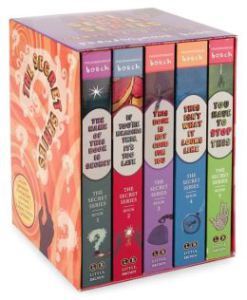 Then my mind went straight to my own blog, where I had very recently reviewed Pseudonymous Bosch’s Secret Series (and posted it to GoodReads). Among many other things (my reviews are pages long and often include information, history, back-story, quotes, and always something positive), I said this: “Let’s just come right out and say that the writing is so-so. There are definitely glimmers of imagination, but the actual writing has moments of real stink and long swaths of mediocrity.” I also said, “Bosch falls prey to the over-realistic conversation. What I mean is, readers don’t really want to know every time a character hesitates, stutters, or ‘um’s. It’s tempting to write that way, I know, but it, too, is obnoxious.” And this: ” I bet that Bosch wrote the first book with the rest of the series in his head, but that his publisher hung some deadlines over him. Therefore each subsequent book got less-seriously edited and was rushed to press.” And this: ” I can’t say the kids or I cared about a single character by the end of the series.” And this: “…the ending pretty much sucked.” And “The illustrations were terrible.”
Then my mind went straight to my own blog, where I had very recently reviewed Pseudonymous Bosch’s Secret Series (and posted it to GoodReads). Among many other things (my reviews are pages long and often include information, history, back-story, quotes, and always something positive), I said this: “Let’s just come right out and say that the writing is so-so. There are definitely glimmers of imagination, but the actual writing has moments of real stink and long swaths of mediocrity.” I also said, “Bosch falls prey to the over-realistic conversation. What I mean is, readers don’t really want to know every time a character hesitates, stutters, or ‘um’s. It’s tempting to write that way, I know, but it, too, is obnoxious.” And this: ” I bet that Bosch wrote the first book with the rest of the series in his head, but that his publisher hung some deadlines over him. Therefore each subsequent book got less-seriously edited and was rushed to press.” And this: ” I can’t say the kids or I cared about a single character by the end of the series.” And this: “…the ending pretty much sucked.” And “The illustrations were terrible.”
Double yikes.
Not very nice words, are they?
Don’t get me wrong. I wasn’t angry. I was attempting to intellectually dissect the series and my reading experience. I wasn’t emotionally invested. I had given things time to ruminate but not so much time I had forgotten what it was like. I said some nice things. I was confident that the author’s career would not be decimated by my review, since the series is selling like hotcakes and the vast majority of reviews are glowing-ly positive. And I did not attack the author’s personhood, or even his career. Just the books.
But I thrashed the books.
It made me wonder, why do I write critiques or reviews?
I started writing book reviews two-and-a-half years ago for precisely three reasons. One, I could never remember what I thought of a book long after I had read it, let alone what it was about. Two, I needed a schtick for my blog and book reviews was not only a very popular one but also one that would remain consistent. I almost always have a book to review. (I paired that with blogs about writing and indie-publishing to give it a little flare.) And three, I had just completed my master Best Books list and wanted to increase my reading. (See HERE for the blog about that.) Then I started posting the reviews to GoodReads, Shelfari (which I will be switching to Amazon sometime soon), and even Pinterest to increase traffic to my site (in theory).
I have liked doing the reviews. I always have something to say. I have really liked having the reviews there when I need to or want to refer to them (sometimes for just my own personal reasons). I have liked watching my list of books-read and books-reviewed grow. And I am so looking forward to reading all the books stacking up in my TBR. My reviews have also led me to at least two different book projects for Owl and Zebra Press, one of which is coming out this summer. So those are all reasons.
But I also want to ask a couple other questions about reviews. What should be our aim? What are out standards? And what is the etiquette?
The aim of a reviewer:
To educate. I always take my opportunity with a reader’s ear to throw in some interesting tidbits and impart a little knowledge about the book, author, or writing or reading in general.
To guide. Isn’t that the idea? Help other people make informed choices about what book to read next? In this capacity, our part is usually as just a note in a symphony of opinion, but not always.
To enhance. Reading reviews can help us to see a book in a different light, in a new way. Sharing changes things.
To share. As a reviewer, writing the review helps us to form more entrenched memories with the book, to digest our experience, and to form a sort of community bond that furthers our enjoyment of the book and the reading process.
The standards of a good book review, or Review Etiquette:
Read the book. Don’t just look at the cover. Don’t just read other reviews. And read the whole thing. If you can’t finish it, don’t review it: you don’t have the whole picture! I suppose there are cases when someone could read a good bit of a book and make a pretty accurate stand on the whole book, like for a certain series I started reading and could not continue due to its excessive graphic nature. But for the most part, read the whole darned thing first.
Give credit where credit is due. Make sure to cite the title, the author, and publication information. (If you are posting it to a review site, it may already have that information attached.) Furthermore, cite page numbers for quotes and give credit for anything else you include, like covers or photos.
Be fair. Pretty sure anyone past kindergarten should understand this one. Try to point out both the positives and negatives, even in a review that leans in one direction or the other. Don’t be swayed by external forces, like the coolness factor or peer pressure or the fame of the author–or your own stinky attitude.
Be honest. And not just to the letter, but also in the spirit of the thing. Know thyself. Know thy opinions and feelings. Know thy past and present and influences. And know thy audience, as well.
Be kind. Beyond being fair and despite being honest, it is a best practice to actually be nice in your book reviews. Why? Because the author is a real person and their book probably has a lot of emotional attachment for them. This work is someone’s baby! So don’t lean over the crib and call it “ugly.” Say, “My! What a stupendously liberal nose!”
Notice editions. It may be best for reviewers to begin now with just stating the edition at the front of every review. Online, the editions’ reviews tend to get all mashed together and confused. Say it: “I am reviewing the Kindle edition of the Black Mamba Press version from September 2014.” Many times, our beefs can be narrowed down to a translation, a glitch, or a commentator.
State it as opinion. I’m pretty sure I bend this one sometimes, or all the time, but let’s all–reviewer and review reader–keep in mind that reviews are opinions, not facts. Be clear about this.
Note #1: While we may follow book review etiquette, we would never be so naive as to think others will follow it, right?. We might hope they would or even encourage them to, but let’s be realistic. I had a “reader” once review my almost-brand-new book based solely on the image of the cover online and give it a terrible rating. Then, she refused to remove the review when I kindly and privately pointed out that she was heavily weighing down my new book’s rating with her unfair review. That’s only the beginning, I’m sure. My point? Deal with unfair and terrible reviews like an adult. Be generous and suave.
Note #2: While we may all walk as close to the line between honesty and kindness as we can, us authors are going to get negative reviews and sometimes we are even going to deserve it. No matter how wonderful the book, someone won’t like it. Someone will find it’s weaknesses. Someone will be in a bad mood. So we, as authors, have to learn what to do with negative reviews. I suggest a combination between avoiding them, ignoring them, and processing them away from the computer, like with a good friend and a bottle of red wine. Take reviews with a grain of salt. After all, we are in an age where people feel safe behind their screens to treat others in ways they never would in person. Or in the old days.
And as a final hurrah to this rather lengthy blog about negative reviews and anger management, I am going to gift you with a series of unfortunate reviews: terrible reviews written about tremendously lauded and fiscally successful books, just to show you it happens to everyone and every book.
 Don Quixote, by Miquel de Cervantes, widely known as the best book in the world, has no less than forty-two one-star reviews on Amazon (in one edition, alone, dealing mainly with electronic medium issues and poor translation). “Who reads this trash? This book SUCKED.” and “ If someone wrote this story today, the publishers would pass on it. I found the main character more of an annoyance. If it’s on your list of must reads, don’t bother.” (J Yates and Richard Houghton Jr.)
Don Quixote, by Miquel de Cervantes, widely known as the best book in the world, has no less than forty-two one-star reviews on Amazon (in one edition, alone, dealing mainly with electronic medium issues and poor translation). “Who reads this trash? This book SUCKED.” and “ If someone wrote this story today, the publishers would pass on it. I found the main character more of an annoyance. If it’s on your list of must reads, don’t bother.” (J Yates and Richard Houghton Jr.)
Harry Potter and the Sorcerer’s Stone, by J.K. Rowling. The Harry Potter series has grossed more money than any other book series in history. The nearly-two-hundred one-star reviews for the first book alone. “Well written? Yes. Interesting? NO!” and “The reason why I don’t like Harry Potter and the Sorcerer’s Stone is because IT ISN’T A GOOD BOOK.” ( brachan and Barbara)
 Dune, by Frank Herbert. “Probably the biggest disappointment ever.” (Victoria Prickett)
Dune, by Frank Herbert. “Probably the biggest disappointment ever.” (Victoria Prickett)
The Lord of the Rings, by J.R.R. Tolkein. “This is quite simply the most boring, overrated series of books I’ve ever seen.”
Jane Eyre, by Charlotte Bronte. “…this by far is the worst book I have ever read.” (J Roselinde)
Anne of Green Gables, by L.M. Montgomery. “Even as a child I couldn’t buy in to this garbage.” and “This book was so dreadfully boring I wanted to cry.” (Rachel and Ranata)
The Hunger Games, by Suzanne Collins. Weighing in with over forty-thousand one-star reviews on GoodReads for the first book, alone, it is widely popular, beloved, and financially productive. “When I turned the last page in this book I almost threw it across the room.” and “Never before have I been so eager to finish a book so that I could come online and write a scathing review of it.” (TheSaint and Laura)





